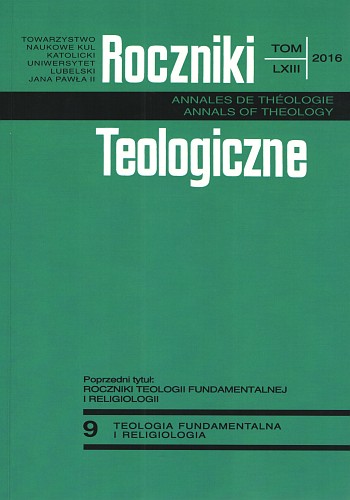Sobór Watykański II w piśmiennictwie łotewskim
A Reflection of the Second Vatican Council in the Latvian Press
Author(s): Ilmars TolstovsSubject(s): Christian Theology and Religion, Theology and Religion, Systematic Theology
Published by: Towarzystwo Naukowe KUL & Katolicki Uniwersytet Lubelski Jana Pawła II
Keywords: Second Vatican Council; Catholic Church in Latvia; Christianization of the Latvia; communists; USSR; ecumenism; secular press; Catholic press; John Paul II; Catechism of the Catholic Church; Church
Summary/Abstract: The report briefly examines the historical situation of the period extending from the 13th century, when Christian missionaries arrived in Latvia and a planned evangelization of the population was organized, up to 1962, when the Second Vatican Council started. As the territory of Latvia was under the rule of different powers and different religious views dominated during different historical periods, there were periods when the ruling power favoured evangelization, but there were also such periods when this process was completely paralysed.The territory of Latvia was under the Soviet occupation regime also when the Second Vatican Council started, thus the progress of Second Vatican Council, as well as realization of ideas and thoughts expressed in the documents of the Council were either hindered or impossible in the Church in Latvia. Notwithstanding the difficulties, Latvia was represented by prelate Julians Vaivods in the fourth and fifth session of the Second Vatican Council. During the Council, J. Vaivods was also consecrated as the only bishop in the territory of Latvia. It should be stressed that there were bishops only in Latvia and Lithuania throughout the whole USSR, and bishop J. Vaivods was responsible for pastoral care of Catholic believers of all the USSR, except Lithuania. Research of articles on the Second Vatican Council published in the soviet press allows to conclude that soviet ideologists sympathized with the openness of the Church to the world and social ideas, because, in their opinion, in such a way the Church tried to modernize religion and develop as if its own Christian socialism. After regaining independence in 1991, the Church in Latvia gradually started to develop; more significant publications about the Council tackling the most necessary issues appeared in the press. However, taking into consideration the previous situation of the Church in Latvia, the work is still being continued. Documents of the Second Vatican Council have not yet been published in Latvian, thus they are not easily available for believers and it hinders them to become aware of the spirit of the Council and implement it in life.
Journal: Roczniki Teologiczne
- Issue Year: 63/2016
- Issue No: 09
- Page Range: 111-124
- Page Count: 14
- Language: Polish

